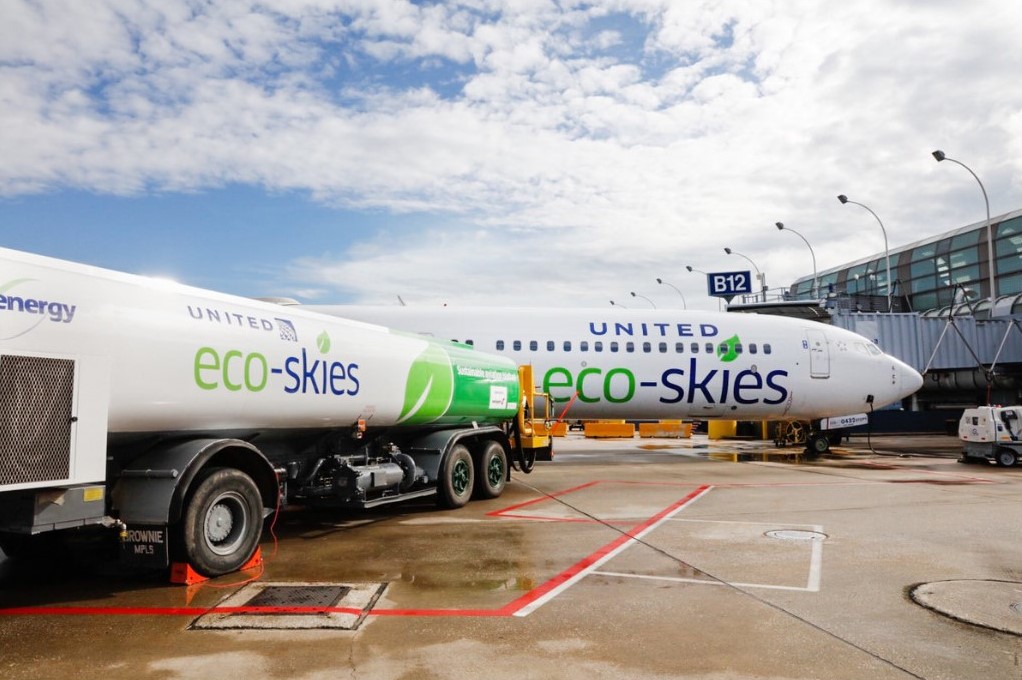United to remove CO2 from the air in bold greenhouse pledge.
10 December, 2020
3 min read


United Airlines has pledged to cut greenhouse gas emissions by 100 percent by 2050 with the help of sustainable fuels and technology that captures carbon dioxide from the air.
The move recognizes that conventional carbon offset schemes currently favored by airlines are an interim solution and that increased investment in alternatives will be needed if flying is to become sustainable.
United in 2018 became the first US airline to commit to reducing greenhouse gas emissions by 50 percent and the move to a target of 100 percent marks an ambitious increase to its goal.
Read: AirAsia X will be back.
The bold target is based partly on a multi-million-dollar investment in an innovative carbon capture technology known as Direct Air Capture (DAC).
The investment in US partnership 1PointFive aims to physically correct for aircraft emissions by capturing CO2 and permanently storing it underground.
READ: Singapore Airlines ready for bounce back with A380s and 777x.
The system works by sucking in air using giant fans and exposing it to a potassium hydroxide solution that chemically binds the CO2.
The trapped CO2 is put through a series of chemical processes to increase the concentration and delivered in a gas form that can be stored underground.
The partnership says the process uses known equipment and processes from other large industries and reuses the capture chemicals multiple times.
Carbon storage is not without its critics, with worries about potential leaks, environmental effects and the impact of natural disasters such as earthquakes.
But 1PointFive, a partnership between Oxy Low Carbon Ventures and Rusheen Capital Management, claims a million ton-per-year DAC facility can do the work of 40 million trees.
United is also continuing its industry-leading investment in sustainable aviation fuels (SAFs), which can have up to 80 percent fewer lifecycle carbon emissions compared to conventional jet fuel.
The airline says it holds more than 50 percent of all publicly announced future airline commitments to using SAF and has been using sustainable fuels longer than other US carriers.
The US giant last year renewed its contract with Boston-based World Energy, agreeing to purchase up to 10 million US gallons of cost-competitive sustainable fuel used in flights departing its Los Angeles hub since 2016.
It has also invested more than $US30 million in California-based sustainable fuel producer Fulcrum BioEnergy and says this remains the single largest investment by any airline globally in a sustainable fuel producer.
"As the leader of one of the world's largest airlines, I recognize our responsibility in contributing to fight climate change, as well as our responsibility to solve it," United chief executive Scott Kirby said in a statement.
"These game-changing technologies will significantly reduce our emissions, and measurably reduce the speed of climate change – because buying carbon offsets alone is just not enough.
“Perhaps most importantly, we're not just doing it to meet our own sustainability goal; we're doing it to drive the positive change our entire industry requires so that every airline can eventually join us and do the same."
Get the latest news and updates straight to your inbox
No spam, no hassle, no fuss, just airline news direct to you.
By joining our newsletter, you agree to our Privacy Policy
Find us on social media
Comments
No comments yet, be the first to write one.

